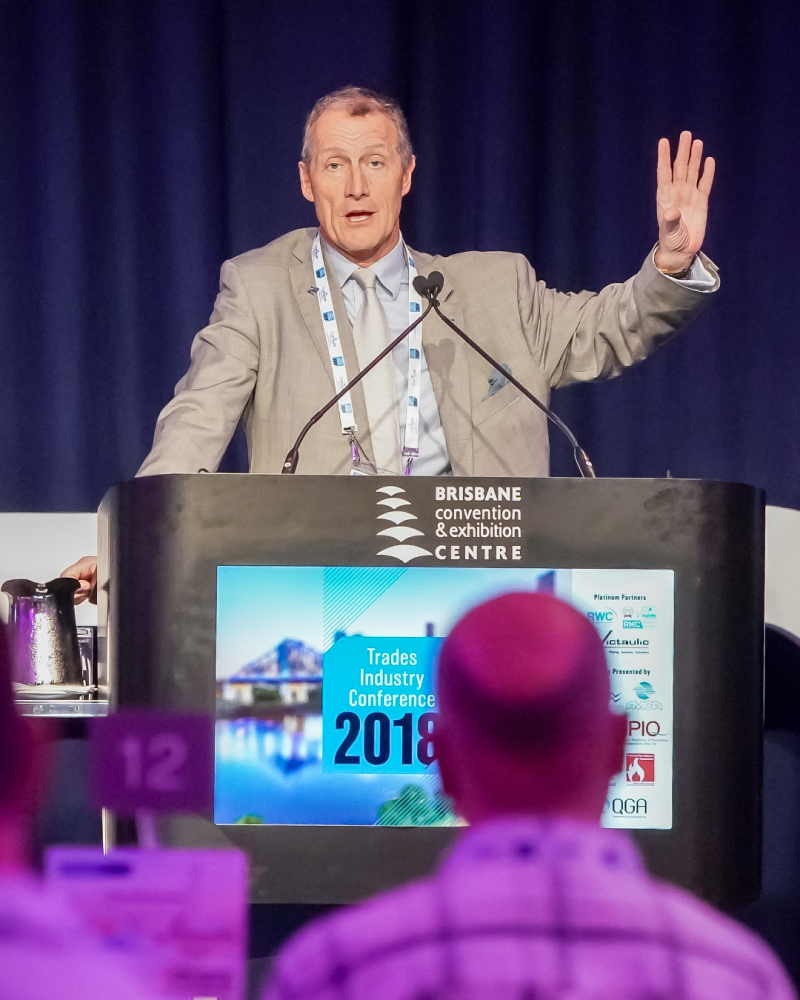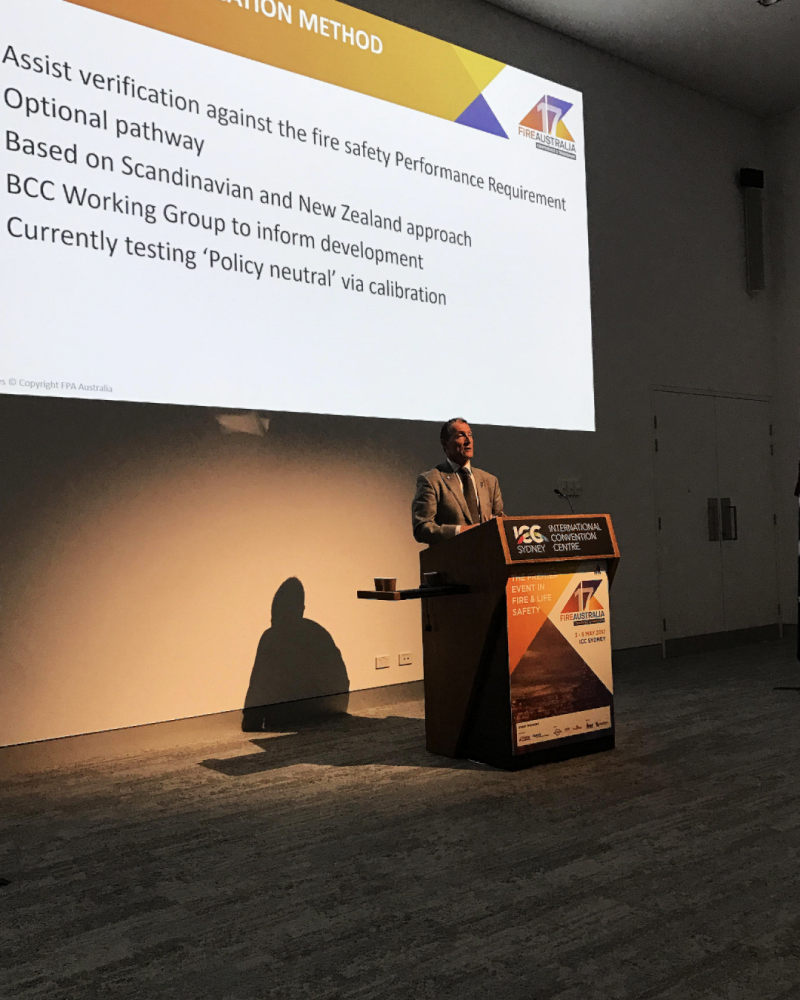The ABCB thanks Neil Savery for his important and impressive contributions to the ABCB and the broader building and plumbing industries.
We reflect on Neil’s contributions and achievements during his career with the ABCB, as he ends his term as the ABCB’s Chief Executive Officer (CEO).
Neil’s connection to the ABCB and the building industry started in town planning following his appointments as the Executive Director of Planning SA, the Chief Planning Executive of the ACT Planning and Land Authority, and as the Deputy Victorian Building Commissioner. In each role, he had a statutory responsibility as a regulator for the building industry and a direct connection with the ABCB. He served as the Board member on the ABCB across the three jurisdictions, for close to 11 years.
Since his appointment as the General Manager, and later the CEO of the ABCB, he has diligently served the Board and the broader industry. Under his stewardship, Neil leaves behind a reform legacy of enormous proportion, including free access to the online National Construction Code (NCC), major technical changes, improved access, education and awareness of the NCC, and responding to the Building Confidence Report (BCR).
Neil coined the phrase improved access, awareness and understanding, making clear that having an excellent code is pointless if no-one understands it or has ready access to it. As such, over the years the ABCB has worked hard to deliver a user-friendly and clear NCC, accompanied by a range of education and guidance materials. Together with a free online NCC, this ensured the Code is now able to be accessed by over 200,000 practitioners nationally.
As CEO Neil led 5 amendment cycles of the NCC, plus two out of cycle amendments to incorporate critical improvements to life safety, in addition to numerous public comment drafts, regulatory impact assessments and improvements to both the WaterMark and CodeMark Australia product certification schemes. He has also embedded a structural change in the remit of the ABCB, producing not only the NCC, but also a suite of new online continuing professional development courses, and a broad range of support, guidance and education materials.
Most notability, Neil progressed the next instalment of building regulatory reforms, guiding the BCR Implementation Team’s delivery of the landmark National Building Confidence Framework and produce best practice model guidance to strengthen building regulations and address the issues identified in the BCR.
With the goal of national consistency at heart, Neil championed initiatives to improve the disability accessibility and energy efficiency requirements, and further the climate resilience of Australia’s built environment. His efforts have also bolstered the ABCB’s international standing as an integral member of both the CANZUS building resilience initiative and the Inter-jurisdictional Regulatory Collaboration Committee, enhancing Australia’s reputation as having world class building and plumbing codes.
Neil created a collaborative culture between governments and industry on the Board and Technical Committees that puts the national interest at the heart of decision making. The ABCB is now a model of national cooperation and good governance that is estimated to deliver more than $2 Billion of productivity benefits to the economy each year.
It is with great admiration and appreciation for Neil that the ABCB acknowledges his contributions over his 9 year term as CEO and 11 years on the Board. We also wanted to thank Neil for his support and sage advice over the years. With your leadership and guidance we, as “one team”, have been able to reach our potential.
Thank you Neil for being our mentor, leader and friend and wish you all the best for your future.
We now hear from Neil himself about his time with the ABCB.
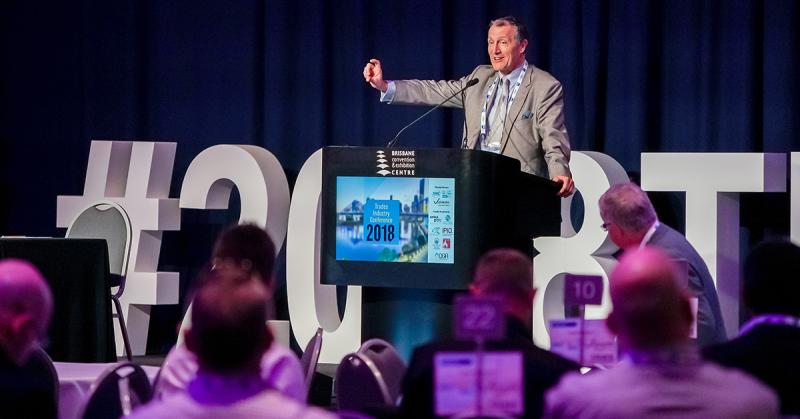
What attracted you to working with the ABCB?
I had been a Board member of the ABCB for 11 years and during the period developed a deep interest in the building industry, identified opportunities where I felt improvements could be made, respected the collaboration that existed between industry and governments, and discovered a passion for addressing the challenges of the sector. Above all else I felt a deep commitment to serving the public interest.
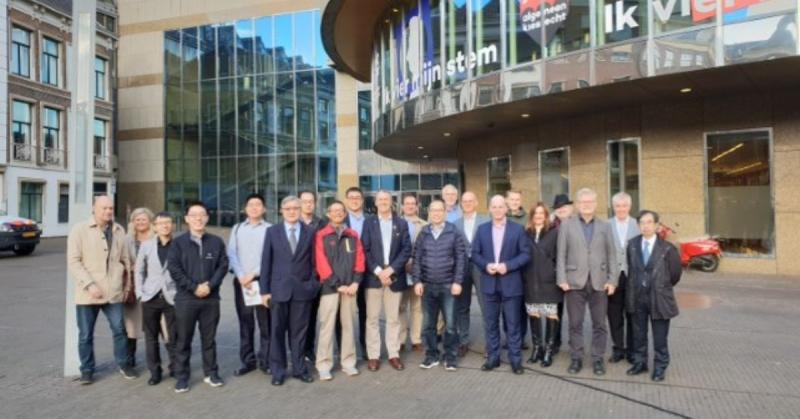
What would you consider the most challenging part of your job during this time?
Relationship management is a key part of the role and those relationships are constantly changing as individuals, governments and subject matter interests change. It is the nature of having an 18 member Board, supporting a group of 9 ministers, supported by technical committees with in excess of 25 members from diverse backgrounds; and an ever changing landscape of subjects introducing various industry associations, government agencies, and their own communities of interest. It’s a good challenge to have and typically an enjoyable part of the work.
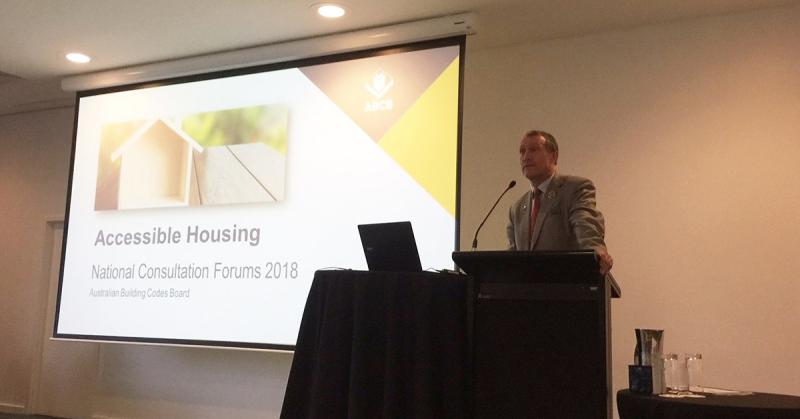
What do you see as being the most significant or memorable change to the building industry over this time?
The most significant change was industry recognition of systemic problems within the sector and a desire amongst the majority to address these through support for the Building Confidence Report and the subsequent Building Confidence National Implementation Framework.
If the reforms emanating from this and the associated initiatives of governments and industry are followed through, they will have an enduring impact on the safety of the community, the welfare of individuals and the productivity of the sector.
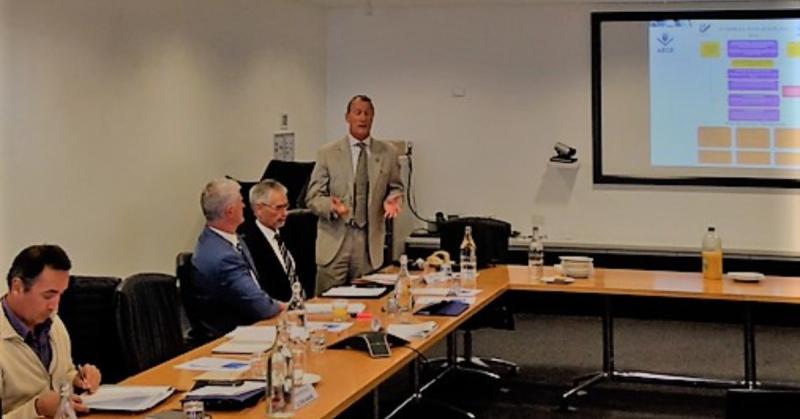
What contribution are you most proud of?
Designing and delivering on the increased access, awareness and understanding reform agenda. Under this program, which commenced in 2016 with making the NCC online, there have been a raft of other initiatives. These have included:
- Quantification and increased/competent use of performance;
- Education and improved support materials;
- Digitalisation and a new information architecture;
- An extended amendment cycle to allow for more robust policy analysis and reduce the churn in change; and
- Applying readability and improved useability principles to the Code.
These projects will continue into the future as they scope new opportunities and respond to new challenges.
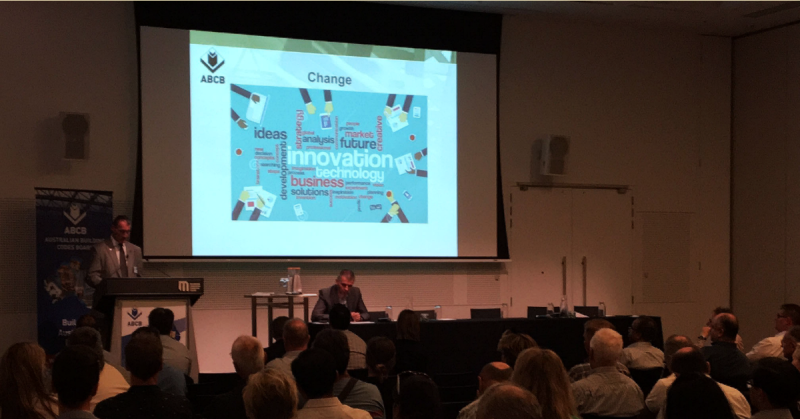
What advice would you give to someone wanting to have a career in this industry?
Not a straightforward question. This ‘industry’ is much more diverse than it may appear at first glance. Building and plumbing might be regarded as the headline, but the variety of professions and trades that sit behind them, the businesses they support, the economy they are a part of and the subjects they have to engage with can be deceptive.
Being this broad provides opportunities for so many skills and interests, which I had the privilege of experiencing whilst working at the ABCB Office, surrounded by individuals from a range of professional and trade backgrounds, and dedicated public servants.
